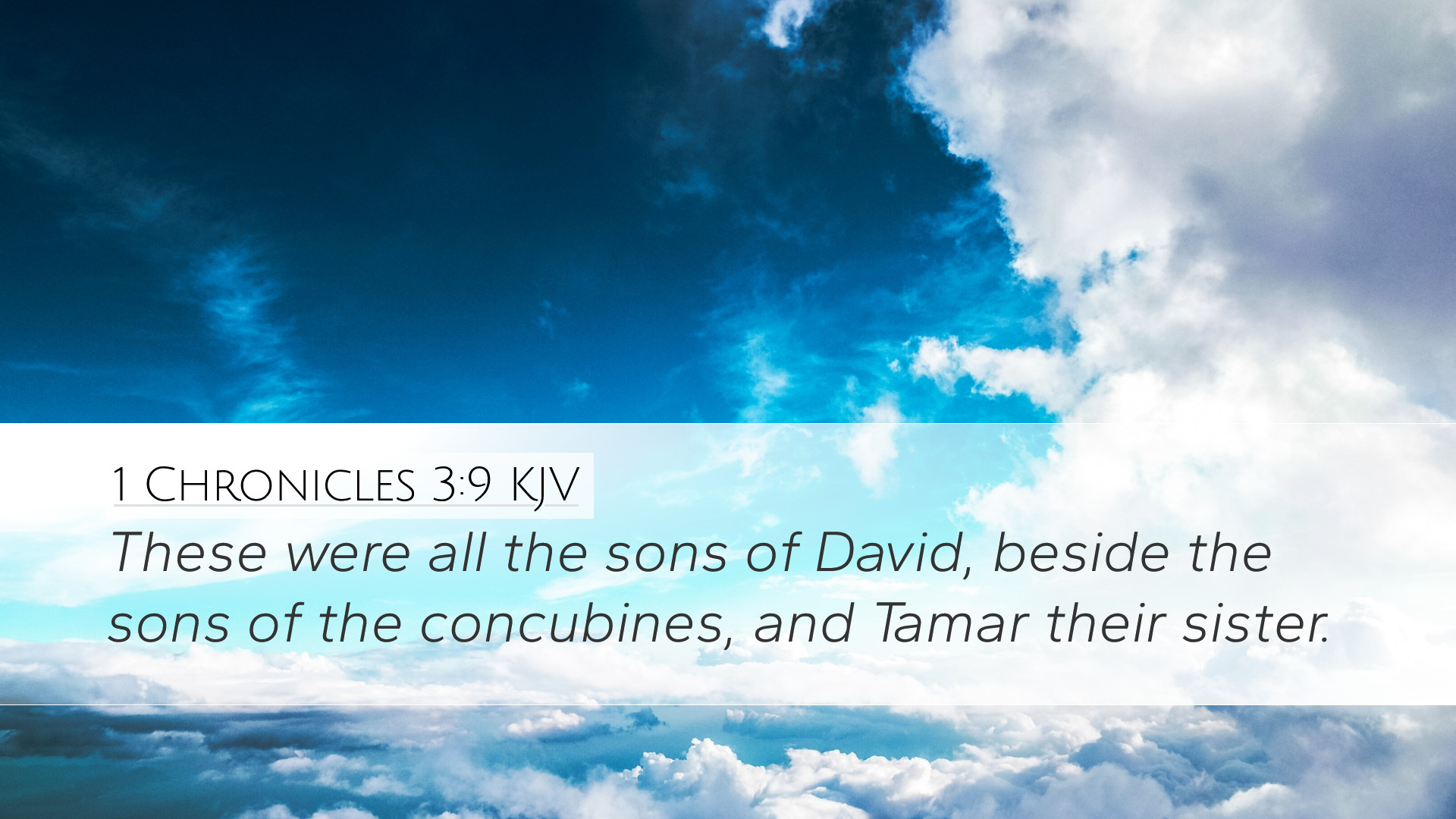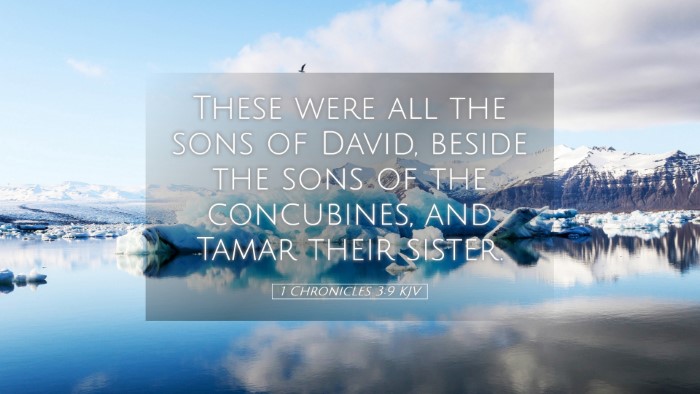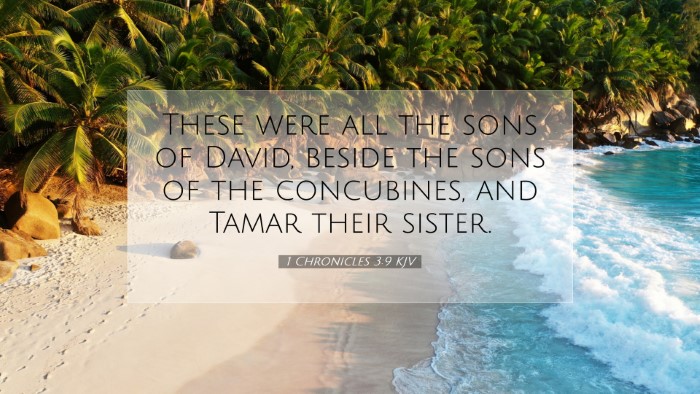Commentary on 1 Chronicles 3:9
Verse Reference: 1 Chronicles 3:9
This verse provides a brief yet profound insight into the lineage and the fate of moral and spiritual legacy within the family of David. The genealogical record serves not only as historical data but also as a theological reflection on the significance of heritage and divine providence.
Contextual Background
1 Chronicles is a historical book that meticulously traces the lineage and genealogies of the tribes of Israel, focusing especially on the Davidic line. Understanding the context of this book is crucial for comprehending the specificity of 1 Chronicles 3:9.
The Text
1 Chronicles 3:9 states:
"All these were the sons of David, beside the sons of the concubines, and Tamar their sister." (KJV)
Commentary Insights
-
Matthew Henry's Perspective
Matthew Henry emphasizes the importance of the genealogical details, noting that they reflect not just the biological lineage but also the spiritual heritage. He points out the inclusion of Tamar, highlighting the recognition of women in the genealogy, which contrasts with the often patriarchal views of society. Henry observes that David’s family was marked by a mixture of honor and shame, pointing out the children born from both legitimate and illegitimate unions, yet all are accounted for in the divine plan.
-
Albert Barnes' Exegesis
Albert Barnes provides a detailed examination of the textual nuances, mentioning that the mention of "concubines" reflects the established social customs of the time. He draws attention to the fact that David had numerous wives and concubines, and this complexity within David's family led to various conflicts and issues as noted in the subsequent narratives of 2 Samuel. Barnes argues that this verse serves as a reminder of the consequences of decisions made with regard to family structure, tying them back to the divine order intended by God.
-
Adam Clarke's Analysis
Adam Clarke’s commentary provides a deep dive into the implications of the relationships and births within David's lineage. Clarke notes the significance of mentioning the sister, Tamar, and infers that this serves to highlight the social structures within David's family. He reflects upon Tamar’s story as one intertwined with themes of justice and redemption, drawing connections to the overarching narrative of Israel’s kingship and God’s covenant with David. Clarke also emphasizes that the mention of David’s children exemplifies the blessings of God upon David despite his failures.
Theological Implications
The passage has profound theological ramifications, especially concerning God's covenant with David and the lasting nature of his lineage. It presents a dual narrative of divine blessing and human failure, demonstrating that God's purposes often transcend human circumstances. The mention of both sons and daughters within David's lineage invites reflection on the inclusivity of God’s plan, extending beyond mere male descendants to encompass all who are part of His promise.
Applications for Pastors and Theologians
For pastors and theologians, this verse serves as a reminder of the complexity of human relationships within the context of faith.
- Family Dynamics: Reflect on how family structures can reflect spiritual truths and obligations.
- Legacy: Consider the spiritual legacy one leaves behind through their relational choices and how they can impact future generations.
- Inclusivity in God’s Plan: Recognize that God's promise and favor can encompass all members of a family, regardless of societal norms.
- Redemptive History: Understand the overarching narrative of Scripture, which weaves individual family stories into a larger redemptive history through Jesus Christ, the ultimate descendant of David.
- Human Frailty: Study how personal failures do not thwart God's purposes, as seen in David's life and lineage.
Conclusion
1 Chronicles 3:9 invites us to reflect on the significance of genealogies not just as historical references but as vehicles of spiritual truth. By examining these insights from respected commentators, we are reminded of the complex interplay between divine sovereignty and human agency, encouraging a deeper engagement with our own legacies of faith and the rich tapestry of God's unfolding plan through generations.


